Ein Kaufhaus in Kyoto (Link). Ein paar Blöcke vor dem Hauptbahnhof.
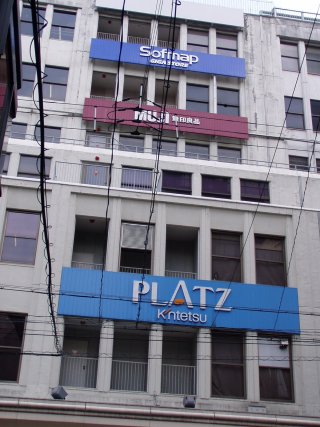
Platz Kintetsu
Sonderthema: Deutschlandjahr in Japan | Special report: German Year in Japan
Ein Kaufhaus in Kyoto (Link). Ein paar Blöcke vor dem Hauptbahnhof.

Platz Kintetsu
I suppose it makes it easier to collect the bodies.
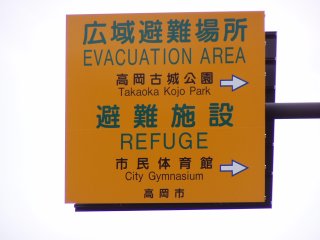
Where to go in Takaoka (高岡市) if the Big One strikes.
At home I avoid fast food "restaurants" wherever possible, not just for diet or ideological reasons. In Japan however I find them useful for shorter and longer breaks while on the move: they almost always have a non-smoking area (otherwise a rareity in Japan), it's possible to stay there for hours without being disturbed (apart from the raucous cries of feral kogals at the next table), and, most importantly, there's a reasonable chance of an open WLAN network in the immediate vicinity.
Fortunately Japan has its own native competitors to the omnipresent McD, which are always good for a cup of coffee (tip: if your primary aim is to drink good coffee, go elsewhere). I avoid the food usually. With one exception: the ebi burger.
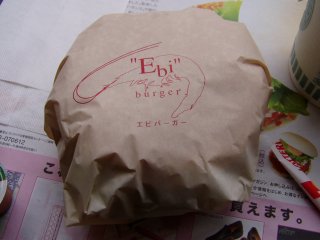
"Ebi" burger - エビバーガー
Ein Frühstückscafé? Leider war es am frühen Abend geschlossen, so dass eine weitergehende Untersuchung nicht möglich war.
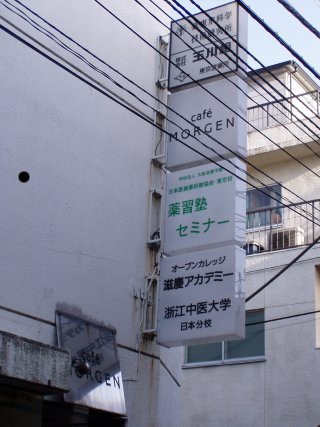
Café Morgen - Harajuku / Jingūmae, in der Nähe des Kōtokuji (高徳時)
Auf der Seite dieses großen grauen Gebäudes im Elektronik-Viertel Akihabara prangert das Wort "DANKE". Wieder mal der Fall: ist damit das deutsche Wort gemeint, oder ganz was anderes? Das wäre auf jeden Fall eine gültige japanische Silbenkombination, doch im 言泉 (einem großen japanischen Wörterbuch, man denke an Wahrig) steht als einziger Eintrag "ダンケ (ドイツ danke) ありがとう", und auch das Eingabeprogramm kennt nur ダンケ, also gehe ich davon aus, daß das Elektrokaufhaus Ishimaru sich bei der Welt im allgemeinen bedanken möchte.
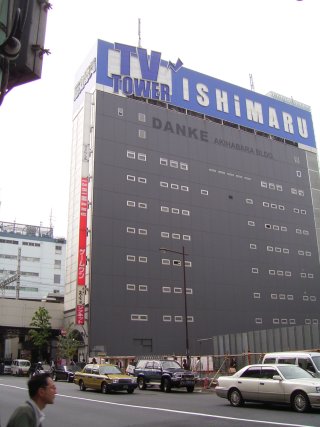
TV Tower Ishimaru - DANKE Akihabara Bldg.